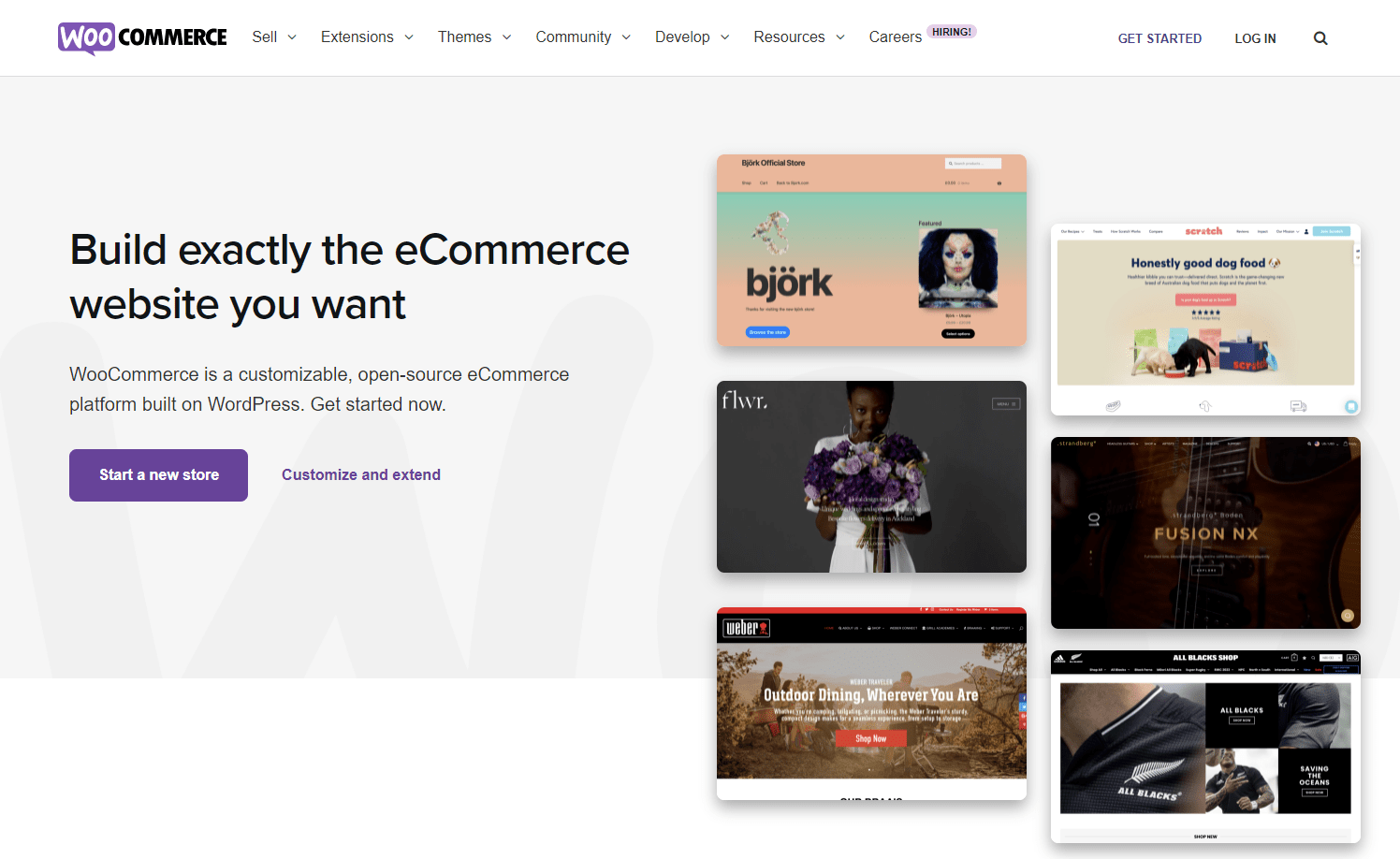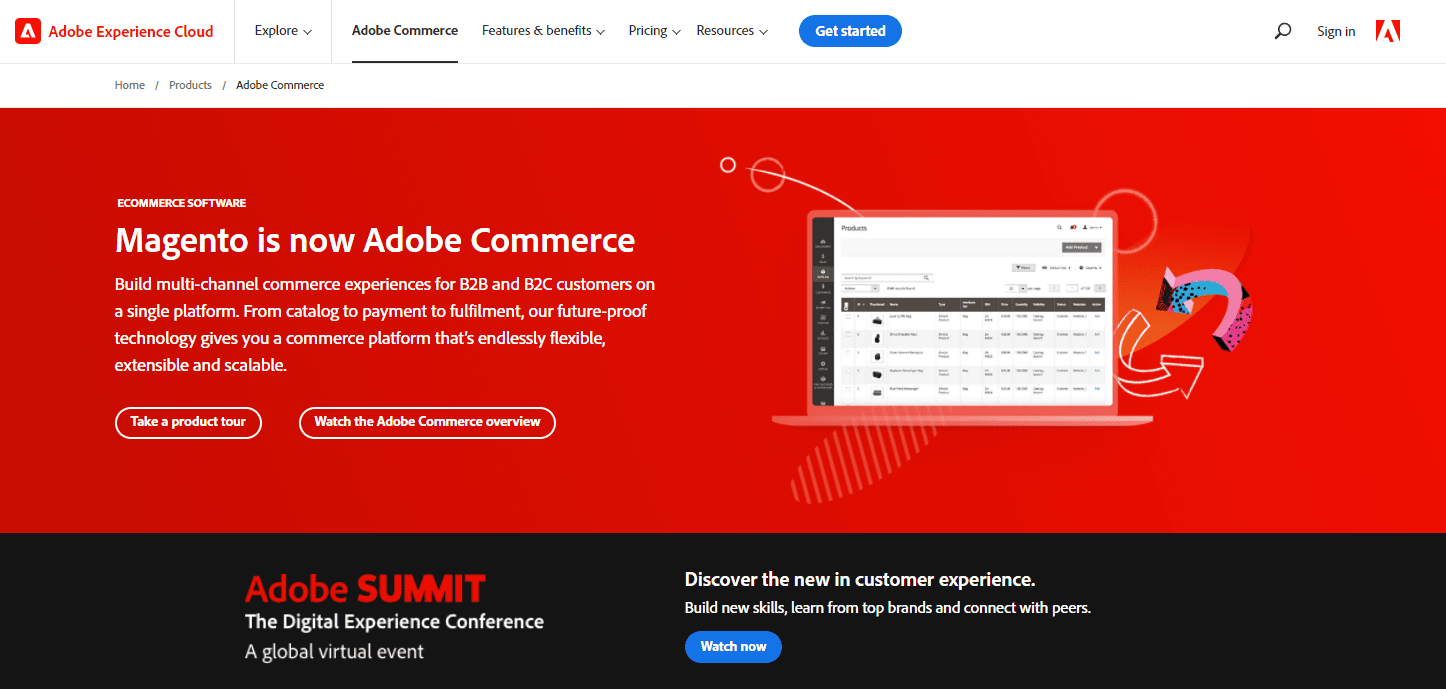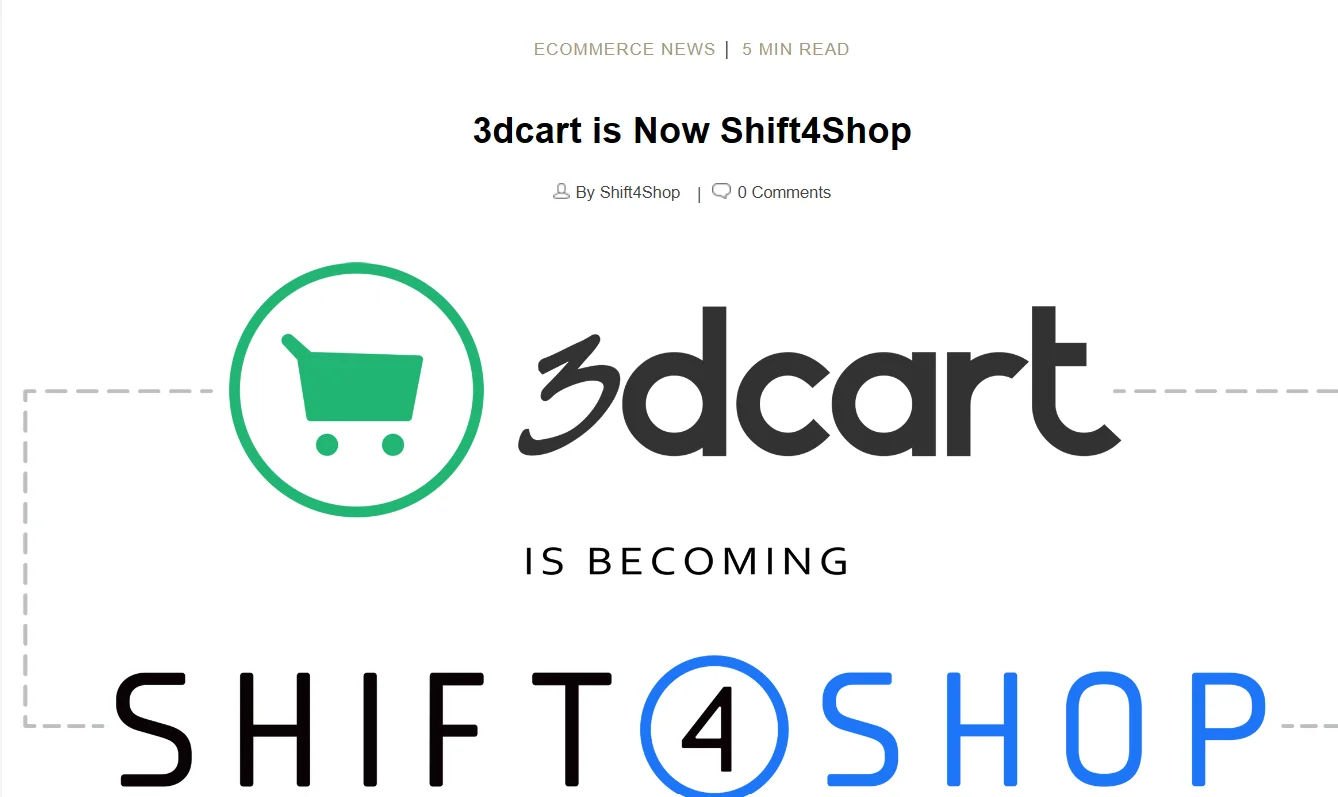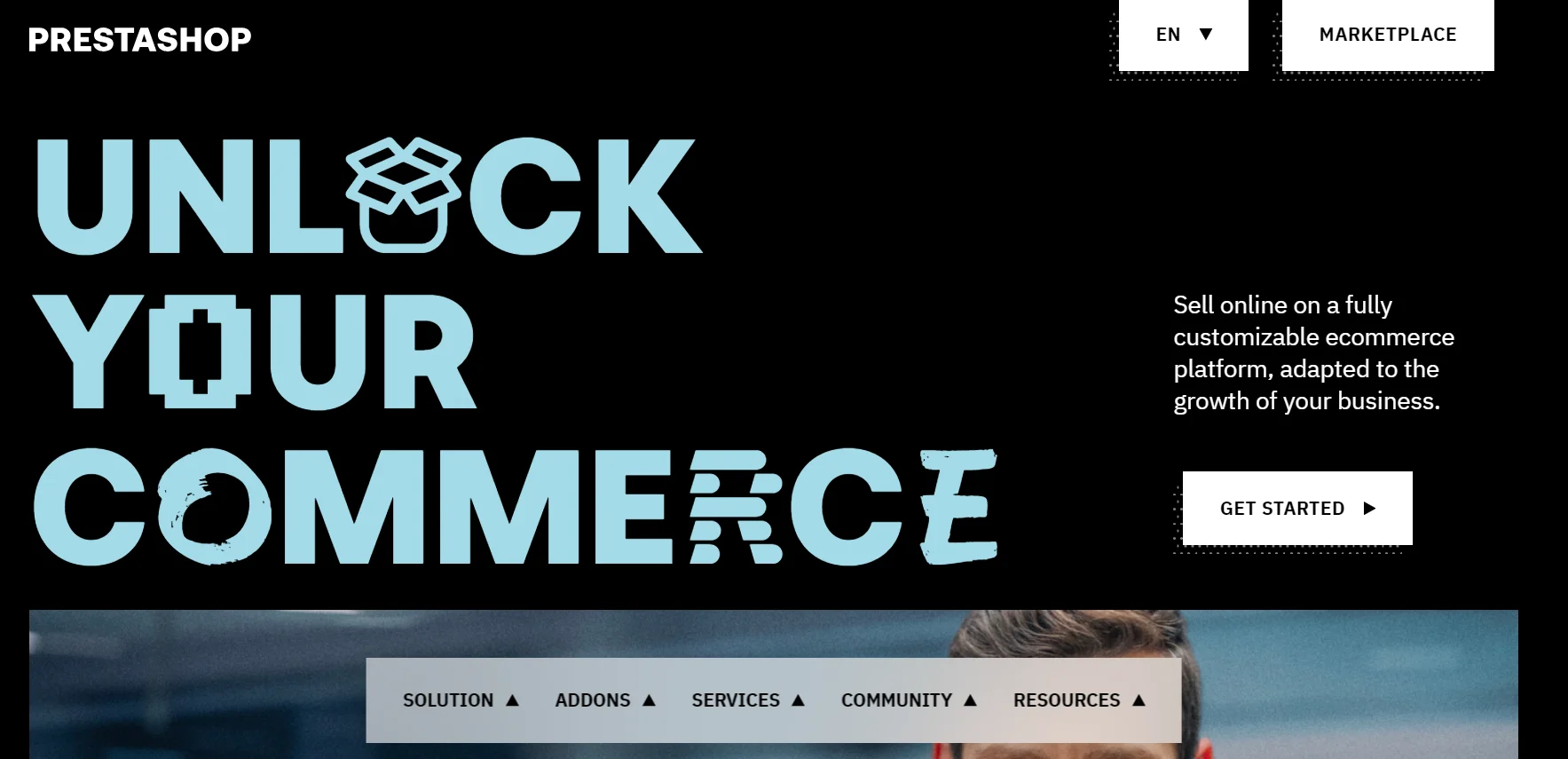Here are some of the best Shopify alternatives mentioned here.
Shopify is an excellent e-commerce solution. There’s no question about that. However, there is a slew of excellent Shopify options worth considering.
WooCommerce, for example, is an award-winning e-commerce platform that is the finest available! Why? It’s open-source, completely configurable, migration-friendly, and scalable.
As your business expands, so will your needs, and the platform you pick should be able to keep up.
We’ve covered Shopify alternatives like WooCommerce, Magento, and BigCommerce in this blog so you can take advantage of features like product categorization, inventory stock updates, and more.
WooCommerce offers a superb CMS thanks to WordPress, therefore if you want a blog for your e-commerce business, you should check at Shopify alternatives.
Read our list of the finest Shopify alternatives to find an e-commerce platform that meets your demands right now!
- Is it Worth It to Try Duda Website Builder? Check This our fantastic Duda review.
Table of Contents
5 Best Shopify Alternatives 2024
Here are some of the best Shopify alternatives mentioned below:
1. WooCommerce
WooCommerce is the result of even a tiny bit of e-commerce application study. By following the WooCommerce tutorial we’ve developed for you, you may set up your own WooCommerce shop.
WooCommerce is one of the greatest Shopify options for many enterprises. It’s absolutely free to use, open-source, and, best of all, highly regarded for measuring visitor satisfaction
Some users even believe that it is superior to Shopify in many ways. Scalability is a little more involved; to acquire the advanced features, you’ll need to upgrade to the more costly version.
Aside from that, WooCommerce contains everything you could possibly need. In a matter of minutes, you can create a website with an expensive cart.

It’s also responsive, making it simple to create mobile-friendly websites. All you have to do now is pay for the hosting. And, unlike Shopify, you don’t have to pay a monthly fee to use their sophisticated features: you may obtain them for a one-time fee.
However, you should be aware that WooCommerce’s debugging capabilities are limited. When used in conjunction with dependable e-commerce hosting, you can greatly increase the performance of your WooCommerce website.
You can also use it in conjunction with a number of abandoned cart plugins to improve the speed of your business. If you want to upsell after a transaction, you may make it so that consumers can add more goods or suggestions with a single click on your website.
Pros:
- There are no transaction costs.
- WordPress connection is seamless, and there are many options that provide maximum creativity.
- One-click upsells after a purchase
- Setup is a breeze.
- You have the freedom to sell as many things as you like in your shop.
- Hundreds of free and paid extensions are available.
Cons:
- There is no hosting involved.
- You’ll need some technical knowledge.
- It’s a little clumsy at times.
2. BigCommerce
BigCommerce is an excellent option if you want a straightforward, no-frills experience with the flexibility of utilizing a drag-and-drop editor to put up your website.
It’s one of the top Shopify alternatives, and it provides e-commerce business owners with a complete cycle solution. BigCommerce features a number of beautiful themes, but just seven are available for free across all sectors.
The premium ones will cost you money, but they are much superior to Shopify in terms of personalization. It also has a number of sophisticated capabilities that can help you better your content marketing and advertise your goods in a variety of ways.

It also comes with a number of features to help you boost your conversion rate. The greatest aspect is that their built-in shop has a lot of features, so you won’t have to pay as much as you would on Shopify.
It also allows you to manage your business across many platforms, such as Amazon, Pinterest, eBay, and Facebook. When you compare BigCommerce’s load times to those of other sites, you’ll notice that they’re a little slower.
The rates range from roughly $29.95/mo to $299.95/mo, so you’ll have to make a decision based on your budget. Your expenses will vary based on the number of items you sell and the amount of money you make.
Pros:
- Multiple drag-and-drop visual editing tools are built-in to help you construct your own e-commerce shop.
- There are over 55 secure payment channels available, and there are no transaction fees.
- Multichannel marketing
- There are other free applications and features to pick from, including an Instagram in-app checkout tool.
- SEO feature and fully customized URLs
- Suitable for a variety of business concepts
Cons:
- If you’re a first-time user, pricing might be confusing.
- Setup is a bit tricky.
- There are only 5 free themes available.
- Do you want to create a website and receive a 50% discount? Go here to save money using coupons.
3. Magento
You may have previously heard about Magento. eBay acquired the firm in 2011, and subsequently, Adobe bought it in 2018. This well-known platform is suitable for experienced business owners, and it has a large and well-established community worldwide.
It’s simple to see why Magento is so popular when you look at the rates. It’s one of the top Shopify alternatives since the cost is pretty close to WooCommerce’s. The content management platform is free, but you’ll have to pay for hosting, themes, and plugins.

Magento, on the other hand, is a content management system (CMS) that allows you to concentrate on selling all of your items via an open-source environment, which is ideal for growing enterprises.
Pros:
- It’s very adaptable and scalable.
- Cutting-edge functionality backed by a community of 250K+ developers to assist you in creating a beautiful and successful e-commerce business.
- There are many safe payment gateway alternatives to choose from.
- Your e-commerce business should have a responsive design.
- Its extensive partner ecosystem offers a variety of add-ons and extensions to pick from.
- Excellent support from the community
Cons:
- To effectively leverage the open-source option, coding and technical expertise are necessary.
- It might be confusing for new users since it is tough to administer on your own.
- It is rather costly.
4. 3DCart (Shift4Shop)
For e-commerce business owners, 3DCart is a solid hosted platform. 3DCart is one of the most popular Shopify alternatives for a variety of reasons. The costs start at $19 per month and go all the way up to $229 per month.
You’ll receive a variety of SEO tools, emails to follow up on abandoned carts, and tailored items in exchange. You also get Facebook integration, very flexible functionality, and a superb site design service that offers SSL certificates at a reasonable price.
They will also customize the UI and UX to meet your specific needs. However, the service is a touch slow, and the themes aren’t that varied. Furthermore, there aren’t many glowing testimonials concerning their customer service.
Pros:
- More than 70 payment gateways are supported.
- Store speeds are excellent.
- Web design services are available in-house.
- Load times are quite quick.
- There are no limits to the number of ads you can
- With no transaction cost, it’s much more sophisticated than Shopify.
- Beginners, as well as large corporations, may afford it.
Cons:
- The service is slow.
- Support isn’t really good.
- There are just a few themes available.
- When updating, you will run into problems.
- For novices, it’s a little tricky to set up.
5. Prestashop
For e-commerce businesses on a budget, Prestashop is a popular Shopify alternative. Although it is technically free, you will need to purchase a hosting plan as well as a domain name, as with the others on our list.
Azure, WebHostingHub, and 1&1 are among the company’s partners. When it comes to themes and templates, Prestashop clearly falls short. However, it is comparable to Shopify in terms of use.
There is no extra transaction cost, and up to 25 languages are supported. Furthermore, it supports a variety of currencies. You may simply construct a terrific online store without spending a lot of money if you hire a quality developer with Prestashop expertise.
Pros:
- Open source and costless
- There are no extra transaction costs.
- Multiple language support is available.
- A diverse set of characteristics
- You have the option of hosting your shop on any server or with any hosting company.
Cons:
- The number of themes and templates available is limited.
- There aren’t as many features.
- It requires a high level of technical expertise.
Quick Links:
Conclusion: Best Shopify Alternatives 2024
Above we have mentioned the best 5 Shopify alternatives. You can choose as per your needs and requirements. I hope the article helped you in finding the idol alternatives.
If there’s anything else you want to add then please let us know in the comment below.



![7 Best WordPress Alternatives 2024: [Best Competitors]](https://megablogging.org/wp-content/uploads/2022/03/Wix-Main-211x150.png)

